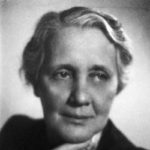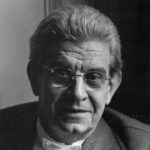Exploring the Unconscious: Arts, Science and the Humanities
Events
The Significance of the Anus in Psychoanalytic Theory
Berkeley City Club 2315 Durant Avenue, Berkeley, CA, United StatesThis talk aims first to illustrate the significance of the anus in psychoanalytic theory, engaging with the writing of Freud, Lou Andreas-Salome, Karl Abraham, and others. It then shifts to a discussion of sociological applications of the theory of anality in the works of Norman O. Brown and Otto Fenichel, articulating finally a theory of […]
Love, Hate and Knowledge: the Analyst’s Aesthetic Conflict
For many years there has been an increasing interest in the nature of the psychoanalytic process as a type of art form, albeit with scientific objectives to do with gaining self-knowledge and knowledge about mental processes in general. The emotional pressures involved in this kind of knowledge were formulated by Bion as ‘Love, Hate and […]
The Analyst’s Desire: The Ethical Foundation of Clinical Practice
Dr. Wilson will present an overview and discussion of his recently published book, The Analyst's Desire: The Ethical Foundation of Clinical Practice (Bloomsbury Academic Press). In this talk, he will unpack the following proposition: the psychoanalyst inhabits her role with a specific desire that is all the more hidden from view when it is satisfied. This claim […]
Freud & Nietzsche: Eternal Return, Symptomatic Acts and the Gay Apophrades
The purpose of this lecture is not to show, once again, how Freud was crucially indebted to Nietzsche, how Nietzsche had anticipated Freud, or how Freud and Nietzsche arrived at the same conclusions. Instead, I will reflect upon something much more intimate than any conjunction of Freud and Nietzsche might suggest. Rather than pursuing, yet […]
What’s uncanny in the Unheimliche?
A long psychoanalytic tradition has viewed the Freudian uncanny (Unheimliche) as a variant of anxiety or anguish, and thus assigns the uncanny to the psychoanalytic theory of anxiety. In this contribution, starting from Freud’s 1919 text, Benvenuto shows how the uncanny can also not produce anguish, but even and above all a sense of perplexity as to what interpretive […]
Roads to the Unconscious: Some Parallels and Divergences between Psychoanalysis and the Writing of Poetry
Helen Schoenhals Hart, Dr.med.
Berkeley City Club 2315 Durant Avenue, Berkeley, CA, United StatesIn an essay in Poetry magazine in 1951, the critic Lawrence Hart wrote: “We came to consider poetry as the adventure of the writer into the hidden springs of his own action and emotion—his work in poetry being parallel in some ways to that done through psychoanalysis and sometimes aided by it.” We’ll explore some of those […]
Trans Realism: Psychoanalysis and the Trans Experience
“The RealReal in Psychoanalysis and in the Trans Experience” Patricia Gherovici “Imagine denying your core and soul.” (p. 3) “If I become a woman I will be my real self.” (p.182) “I think it’s much easier for a trans woman or a trans man who authentically kind of looks and plays the role.” (p. 197) […]
*POSTPONED* Trans Realism, Psychoanalytic Practice, and the Rhetoric of Technique
Berkeley City Club 2315 Durant Avenue, Berkeley, CA, United StatesIn “Trans Realism, Psychoanalytic Practice, and the Rhetoric of Technique” Grace Lavery argues that, in Eliot’s early, definitive statement of realism in the seventeenth chapter of Adam Bede, realism will only have been accomplished when readers have learned not merely to respect, but to desire, the dysphorically sexed bodies of others. In this sense, Lavery […]
Creativity and the Erotic Dimensions of the Analytic Field
Berkeley City Club 2315 Durant Avenue, Berkeley, CA, United StatesDr. Elise will present an overview and discussion of her book, Creativity and the Erotic Dimensions of the Analytic Field, where she puts forth the premise that psychoanalysis is an erotic project. She proposes that a creative aesthetic can provide a clinical container for the engagement and exploration of erotic life within the anlytic field of each […]
Mama, Mnemo – Reading Kristeva with Montale
Berkeley City Club 2315 Durant Avenue, Berkeley, CA, United StatesTime and time again, Eugenio Montale's poems speak to a loved and absent auditor; they address, intimately, a You, a second person or familiar other. You could call this work museic, which would be to say both that it is often musical (deploying a pleasing geometry of sound and sense bordering on the unsayable) and addressed to a muse, a […]
The Maternal: Psychoanalysis, Literature and Film
Berkeley City Club 2315 Durant Avenue, Berkeley, CA, United StatesTheorizing our relation to the concept of "the Maternal" has been an ongoing psychoanalytic project: Dr. Claire Kahane will speak about the underplayed aspect of "maternal rage", an ambiguous term, referring both to the child's rage against the maternal object, and the mother's rage against not only the child, but the very concept of the […]
Light Rooms: Medium, Mourning and Mania
Berkeley City Club 2315 Durant Avenue, Berkeley, CA, United StatesWhat happens when psychoanalysis joins in conversation with photography? Arguing that light is a "carnal medium" that provides an umbilical connection between the photographed object and the viewer, Roland Barthes recovers a neglected thread of early psychoanalytic discourse about mourning, in which "mania" had been a prominent term. Focusing on a few scenes from Virginia […]


